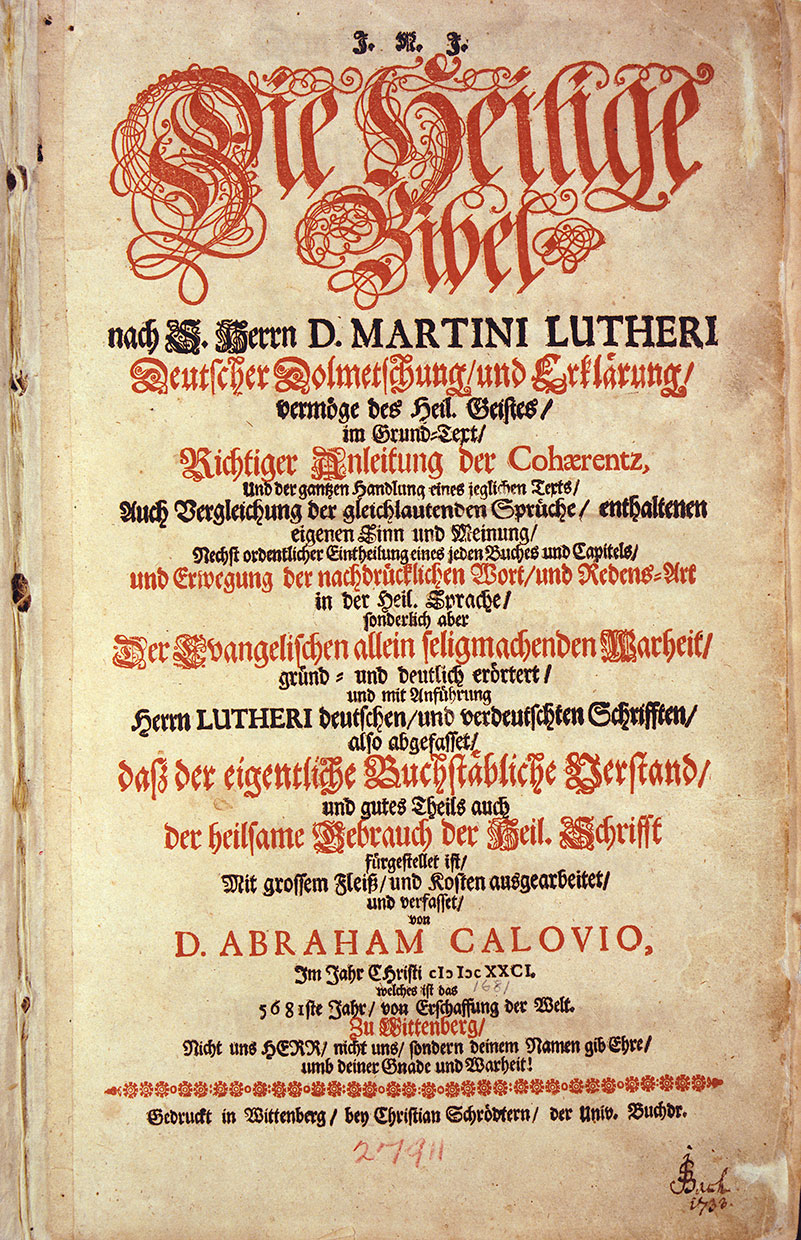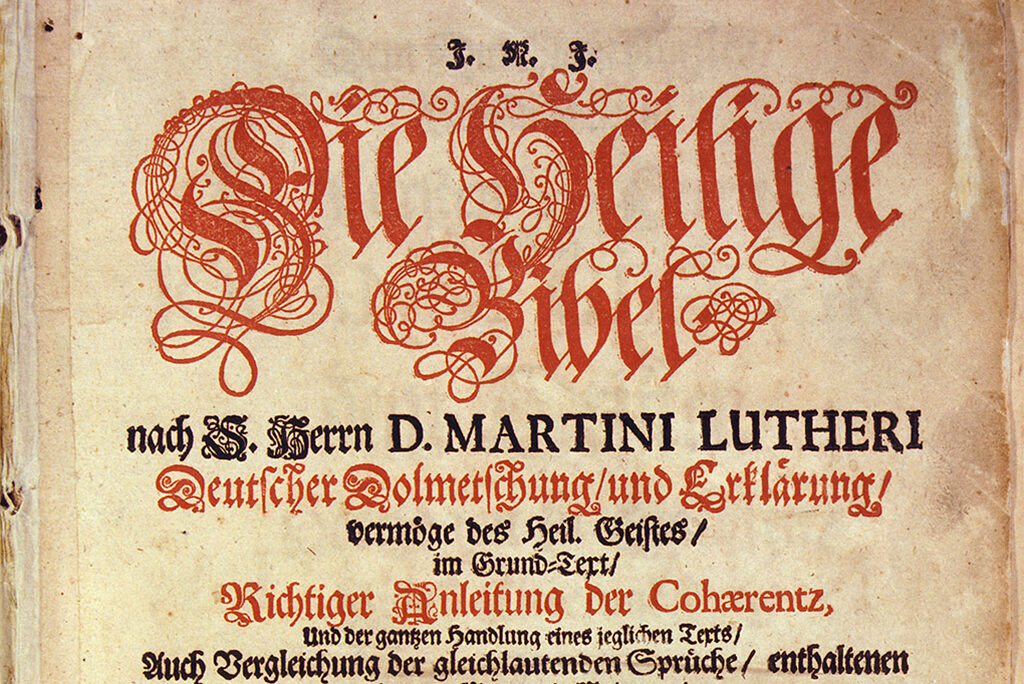
By Jeni Miller
As part of its larger celebration of the Reformation’s 500-year anniversary, Concordia University Chicago in River Forest, Ill., will be unveiling a new exhibit starting Oct. 8 featuring rare first-edition books and Bibles from the 15th, 16th and 17th centuries.
The display, titled “Let the Books Tell the Story,” will include 35 items from Concordia Seminary, St. Louis; Concordia Theological Seminary, Fort Wayne, Ind.; Mundelein Seminary at the University of St. Mary of the Lake, Mundelein, Ill.; the Lutheran School of Theology at Chicago; Wheaton College, Wheaton, Ill.; and the Newberry Library, Chicago.
Organized by theme, the display will chart the Reformation legacy and tell its story through the fields of theology, Scripture, education and the fine arts.
The collection will include several facsimile editions, but the real attraction will be the rare and authentic first editions of books, such as:
- the Gutenberg Bible (1455);
- Erasmus’ Greek New Testament (1519);
- Martin Luther’s seminal works of the 1520s;
- the Achtliederbuch, the first Lutheran congregational hymnal (1524);
- the Augsburg Confession (1531);
- the Biblia Del Oso, the first Bible printed in Spanish (1569);
- the Dresden edition of the Book of Concord (1580);
- the Geneva Bible (1599); and
- the “Bach Bible” or Calov Bible (1681).
“These incredible items will bring the Reformation history to life for those who come to view it,” said the Rev. Jeffrey Leininger, university pastor and dean of the chapel at Concordia University Chicago. “When these books were first printed, it was the dawn of the age of the printed book. It was all new. Now we find ourselves at the end of the printed book.
“This is the perfect time to tell the Reformation story through these books themselves,” Leininger said. “Who owned them? What did they write in them? Where were they printed? Who did they influence? Let the books tell the story.”
As this event was being conceived, the first item on the list that served as the lead piece for the collection was the Calov Bible, or “Bach Bible.” This 1681 edition contains composer J.S. Bach’s handwritten reflections, comments and insights on the Scriptures, providing an invaluable commentary on his personal faith and the Lutheran musical legacy that the Church also celebrates this year.
This exhibit, Leininger said, likely will be “the last time this priceless item will ever travel from its home in the archives of Concordia Seminary.”
In fact, he adds, all the displayed items — worth, in total, “several million” dollars — will be treated as the priceless treasures they are while on the Concordia, Chicago, campus.
“It’s perhaps a rare event that a collection like this — reflecting a collaboration between Protestant, Lutheran and even Catholic churches — would be made available to the public,” noted Leininger. “For that reason, there are security concerns to note in order to pull this off, including 24-hour video surveillance, locked and secured cases, environmental controls such as heat and humidity that have to be monitored, and even low lighting.”
While the exhibit will run through the month of October, the collection will be open to the public Oct. 28 and 30, with additional dates likely to be added. Private viewings also can be scheduled. More details are available at cuchicago.edu/reformation.
This exhibit is just one of several events Concordia, Chicago, has planned to celebrate the 500th anniversary of the Reformation. On Saturday, Oct. 28, the campus will hold a special “Reformation 500 Celebration Day” event, and on Oct. 30, an unprecedented “Interdenominational Conversation” will feature a panel of Lutheran, Reformed and Catholic leaders discussing the Reformation and its impact today.
The rare-book-and-Bible display will be available for viewing during those two events.
“We believe these books have a story to tell,” added Leininger. “It is a story of God’s providence and grace in using Martin Luther to renew the Church and recover the Christian Gospel for the world. It is also a story of incalculable political, cultural and societal change well worth exploring and debating.
“Schools and scholars, congregations and families — all will find something meaningful and moving in viewing this display.”
Deaconess Jeni Miller (jenikaiser@aol.com) is a freelance writer and member of Lutheran Church of the Ascension in Atlanta.
Posted August 3, 2017
